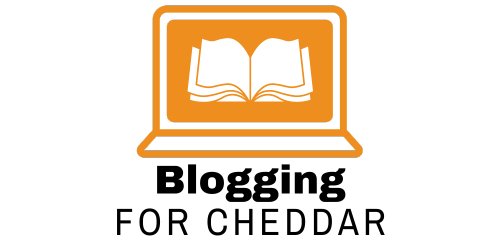So, you’ve started a blog and things are going well. You’ve built up a loyal following, produced high-quality content, and now you’re starting to think about monetizing your blog. But before you dive into the world of sponsored posts, affiliate marketing, and other ways to earn money through your blog, it’s important to understand the potential legal issues and disclosures that come along with it. In this article, we’ll explore the various legal considerations you need to be aware of, from disclosing sponsored content to copyright infringement concerns. By the end of this article, you’ll have a clear understanding of how to navigate the legal landscape of blogging and ensure you stay on the right side of the law.
Legal Issues
As a blogger, it’s essential to be aware of the potential legal issues that can arise when earning money through your blog. Understanding these issues will help protect yourself and your blog from legal pitfalls and ensure that you are operating within the boundaries of the law. Let’s explore some of the most common legal issues that bloggers may face and the necessary disclosures that you need to make.
Copyright Infringement
Understanding Copyright Laws
Copyright laws protect original creative works such as articles, images, videos, and music. It gives the creator exclusive rights to their work and prohibits others from reproducing, distributing, or displaying the work without permission. As a blogger, it is important to respect copyright laws by not using copyrighted material without obtaining proper permission or ensuring that your use falls under the fair use doctrine.
Using Copyrighted Material
Using copyrighted material without permission is a violation of copyright law and can lead to legal consequences. To avoid copyright infringement, always seek permission from the copyright owner before using their material on your blog. Alternatively, consider using royalty-free or Creative Commons licensed material, which allows for limited use without explicit permission.
Fair Use Doctrine
The fair use doctrine allows limited use of copyrighted material without permission for purposes such as criticism, comment, news reporting, teaching, scholarship, or research. However, determining whether your use qualifies as fair use can be complex, and it is always wise to consult with a legal professional if you are unsure.
DMCA Takedown Notices
If you believe your copyrighted material has been used without permission on another blog, you can issue a DMCA takedown notice. This notice requests that the infringing content be removed under the provisions of the Digital Millennium Copyright Act (DMCA). Familiarize yourself with the DMCA process and ensure that you respond promptly to any valid takedown notices concerning your own blog’s content.

Trademark Infringement
Understanding Trademark Laws
Trademarks protect the brand names, logos, slogans, and designs that are associated with specific products or services. Using someone else’s trademark without authorization may lead to a trademark infringement claim. Familiarize yourself with trademark laws in your jurisdiction and ensure that you do not use any registered trademarks without permission.
Using Trademarks in Blogging
Using trademarks in your blog posts or domain name may be permissible if you are making fair use of the mark in a non-confusing manner. However, using a trademark in a way that suggests endorsement, affiliation, or sponsorship can potentially lead to trademark infringement claims. When using trademarks, it is important to clearly distinguish your own brand and content from the brand or product associated with the trademark.
Trademark Infringement Liability
If you are found liable for trademark infringement, you may be required to cease using the infringing mark, pay damages, and potentially face legal consequences. To protect yourself from such liability, conduct thorough research before using any trademarks and consult with a legal professional if you have concerns about potential infringements.
Plagiarism
Understanding Plagiarism
Plagiarism is the act of using someone else’s work and passing it off as your own without proper attribution. This can include copying and pasting text from other sources, paraphrasing without giving credit, or using images or ideas without permission. Plagiarism is not only unethical but also a potential legal issue that can result in copyright infringement claims or academic repercussions.
Citing Sources Properly
To avoid plagiarism, always properly attribute any sources you use in your blog posts. This includes providing a clear citation, hyperlinking to the original source, or using quotation marks for direct quotes. Familiarize yourself with different citation styles, such as MLA, APA, or Chicago, and consistently follow the appropriate guidelines.
Consequences of Plagiarism
Plagiarism can damage your reputation as a blogger and potentially lead to legal consequences. If someone accuses you of plagiarism, be prepared to address the issue promptly and honestly. In severe cases, legal action or academic penalties may be pursued. Always prioritize originality and ethical writing practices to avoid these complications.

Defamation
Defamation Laws
Defamation refers to false statements that harm someone’s reputation. It can be categorized into two types: libel, which is written or published defamation, and slander, which is spoken defamation. As a blogger, it is crucial to avoid making false statements about individuals or entities that could be considered defamatory.
Understanding Libel and Slander
Libel and slander statements can lead to lawsuits seeking damages for harm caused to reputation. To avoid defamation claims, ensure that the statements you make on your blog are true, backed by evidence, or constitute fair comment or opinion. Additionally, be cautious when discussing public figures, as the standards for defamation may differ.
Avoiding Defamatory Statements
When writing on your blog, exercise caution and verify the accuracy of any information you share. If you make claims about individuals or businesses, support them with reliable sources and clearly distinguish between facts and opinions. Correct any errors promptly and be willing to apologize or issue retractions if necessary.
Dealing with Defamation Claims
If someone accuses you of defamation, seek legal advice immediately. Defamation claims can be complicated, and the consequences can be significant. Consult with an attorney who specializes in defamation law to understand your rights and options. It is essential to handle any such situation professionally and seriously.
Privacy and Data Protection
Collecting and Using Personal Data
If your blog collects personal data from visitors, you need to understand and comply with applicable privacy and data protection laws. Obtain informed consent from visitors before collecting any personal information and clearly explain how you will use and protect their data.
GDPR Compliance
If you have visitors from the European Union or European Economic Area, you must comply with the General Data Protection Regulation (GDPR). The GDPR imposes strict requirements for the collection, processing, and storage of personal data. Review the GDPR’s data protection principles and implement necessary measures, such as obtaining explicit consent, providing data subject rights, and maintaining appropriate data security.
California Consumer Privacy Act (CCPA)
If you have visitors from California, you may need to comply with the California Consumer Privacy Act (CCPA). The CCPA grants California residents certain rights regarding their personal information, including the right to know, delete, and opt-out of the sale of their data. Understand the CCPA’s requirements and ensure that you provide the necessary disclosures and options to comply.
Privacy Policy Requirements
Regardless of your jurisdiction, having a comprehensive privacy policy is essential. Your privacy policy should inform visitors about the types of data you collect, how you use and protect it, any third parties you share data with, and the rights visitors have regarding their data. Clearly display a link to your privacy policy on your blog and ensure it is easily accessible to visitors.

Disclosure and Transparency
FTC Guidelines for Disclosures
The Federal Trade Commission (FTC) requires bloggers to disclose any material connections, endorsements, or compensation they receive when promoting products or services. These guidelines are designed to ensure transparency and informed consumer decision-making. Familiarize yourself with the FTC’s guidelines and include appropriate disclosures whenever required.
Types of Disclosures Required
Disclosure requirements may include disclosing affiliate relationships, sponsored content, free products or services received, or any other form of consideration received in exchange for promoting a product or service. Disclosures should be clear, conspicuous, and easily noticeable to your readers.
Disclosing Sponsored Content
If you publish sponsored content on your blog, it is essential to disclose this to your readers. Clearly state that a post is sponsored or that you have received compensation in any form for the content. Avoid misleading your audience and maintain transparency regarding your relationship with advertisers or sponsors.
Affiliate Marketing Disclosures
If you participate in affiliate marketing programs, disclose your participation and the possibility of earning commission from qualifying purchases. Clearly indicate when links on your blog are affiliate links to ensure that readers are aware they may be supporting you financially through their purchases.
Remember, this comprehensive overview of legal issues and disclosures for bloggers is a starting point. It is crucial to consult with a legal professional who can provide guidance tailored to your specific circumstances and jurisdiction. By staying informed and acting ethically, you can navigate the legal landscape confidently and protect yourself while running a successful blog.


